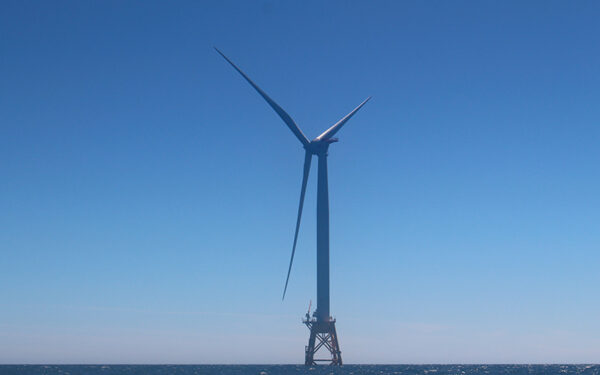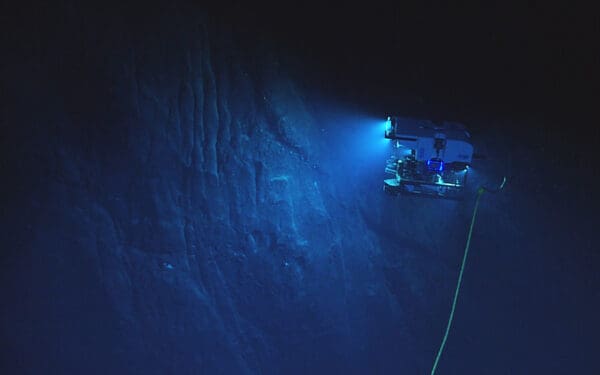
As the saying goes, if you fail to plan, you plan to fail. When President Trump revoked the National Ocean Policy last summer, we worried that it would harm the health of our ocean. But here in New England, ocean planning – the idea that we can be smarter and more coordinated about how we collectively use and manage our ocean – lives on.
Coordination is Key
Between climate change and our increasing industrial demands on our waters, ocean planning is more important than ever. Like urban planning on land, ocean planning helps us make smart, sustainable decisions about everything from where to place an offshore wind farm to which areas should be protected for biodiversity conservation.
The National Ocean Policy, first established by President Obama in 2010, provided a framework for developing comprehensive, science-based regional ocean plans nationwide. The Northeast led the way in 2010 with comprehensive state ocean plans in Massachusetts and Rhode Island. The Northeast Regional Ocean Plan was certified in December 2016. But last June, the Trump administration stripped away the national policy of ocean stewardship and replaced it with one of maximum ocean exploitation. The new policy emphasizes extraction like oil and gas drilling instead of prioritizing conservation and a sustainable future for the ocean.
The Northeast Regional Ocean Council is continuing this critical work for New England. The council coordinates the dozens of state and federal agencies who manage our ocean. It provides a forum for discussing issues that will impact our ocean’s health for years to come. These agencies have overlapping and sometimes conflicting responsibilities, but the council brings them together to collaboratively discuss important topics.
Good Planning is Grounded in Good Science
In addition to helping agencies work together, the Northeast Regional Ocean Council maintains the Northeast Ocean Data Portal. This crucial online tool brings together peer-reviewed ocean data and maps to help decision makers understand how we use our ocean. It is a repository for everything from where endangered right whales gather to where scallop vessels fish to where scuba diving areas are located.
All of this information can help us advance sustainable uses of our ocean resources while safeguarding wildlife and sensitive underwater habitats.
For example, the data portal was crucial in picking the right spot for the first offshore shellfish farm in Atlantic federal waters. Data from the portal helped the farm ensure it wouldn’t harm endangered species or disrupt boating.
Regional fishery managers have also utilized the portal to provide key information and maps to stakeholders about proposed management measures, such as recent efforts to protect deep sea corals throughout New England. Access to these maps allowed both stakeholders and decision makers to come to the table better informed.
And as offshore wind and other industries continue to grow, the data portal will help inform industry and agency decision making to balance clean energy development with the protection of the marine environment. Endangered North Atlantic right whales migrate through and feed in the areas being developed for offshore wind. Data on when and where they are predicted to congregate is being used by wind developers and agencies to design seasonal restrictions and other management measures to avoid harming right whales during the construction of offshore wind turbines.
As Our Ocean Warms, We Need a Plan
Regional coordination and public data are all the more important with climate changing dramatically altering our ocean ecosystem, rapidly warming waters and shifting species migratory routes. The Gulf of Maine is one of the fastest-warming water bodies on the planet. Managing current and future ocean uses through these changes can be complex, but planning can help us prepare for the challenges ahead.
CLF has worked to advance state and regional ocean planning in New England for nearly 15 years. We were deeply involved in the development of the Northeast Ocean Plan because we believe that ocean planning, based on good science and data and informed by stakeholders, is essential to protecting and restoring our ocean environment. The Northeast Regional Ocean Council will continue to carry forward the ocean planning vision that federal and state agencies, federally recognized tribes, and stakeholders set forth in the Northeast Ocean Plan.
CLF will continue to fight for the health of our ocean and the diversity of wildlife that call it home. We remain deeply committed to advancing responsible stewardship of our ocean waters and stand ready to work with the regional council to realize that vision.



